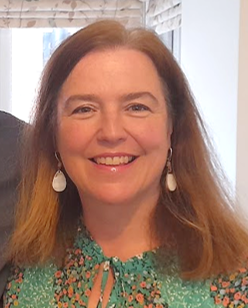
“I feel that research culture and equality, diversity and inclusion are part of the same coin and I’m working to really embed equality, diversity and inclusion into research culture.”
In a recent conversation with Rachel Cowen, Professor of Inclusive Researcher and Academic Development in the Faculty of Biology, Medicine and Health at the University of Manchester, we discussed what it takes to create a robust and nurturing research culture. Professor Cowen is also the University Academic Lead for Gender and Sexual Orientation Equality as well as having experience as a cancer researcher.
Her career move to researcher and academic development was influenced by her experiences of research culture and the difficulties she faced trying to balance laboratory and family life. From these struggles, Professor Cowen has become committed to creating a more inclusive, equal and diverse space for all researchers.
Professor Cowen expressed that there is a responsibility for research leaders to foster a healthy research culture within their teams. She explained at an institutional level if you want an environment to be positive, every team leader must promote the same positive attitudes locally. Everyone within a team contributes to shaping the culture, particularly the leader. They set the standards and expectations and people within their teams align with that. She emphasised the critical need for leaders to recognise and leverage their influence in shaping a culture of inclusivity, positivity, and support.
With Professor Cowen’s position as University Academic Lead for Gender and Sexual orientation Equality, she shared her expertise on gender representation in research. Despite achieving gender parity at the entry levels of academia, women continue to encounter barriers impeding their ascent to professorial and research leadership roles.
Professor Cowen highlighted the systemic impediments faced by women, including career interruptions and biases prevalent in grant allocation and authorship attribution. These include the difficulties many women face after taking multiple maternity leaves. It can be difficult to integrate back into your discipline and maintain your profile and output after time away.
Unfortunately, these issues are widespread and part of the wider work culture in the UK, not just research culture. In the 2018 Government report on Pregnancy and Maternity Related Discrimination and Disadvantage, 77% of mothers reported having experienced a negative or possibly discriminatory experience during pregnancy, maternity leave and/or on return to maternity leave across England, Scotland and Wales.
Attempting to address these issues within her own work, Cowen assisted in implementing the Academic Returners Scheme at the University of Manchester. This scheme applies to anyone who has taken extended leave for six months or more, and gives them funding to assist in maintaining their career trajectory.
This scheme attempts to break the cycle of women struggling to get back on track with their careers after taking maternity leave as well as for researchers that have had to take any sort of career break. It can be a challenge to get back into disciplines and maintain a profile after a break, but this scheme is just one of Professor Cowen’s achievements that aims to level the playing field for all researchers and contribute to a healthy research culture.
She has also led on Inclusive Advocacy at the University of Manchester. As part of this venture, an individual from an underrepresented group or someone who has led a non-traditional career is partnered with a senior research leader who can help support them and navigate the systems in place at Manchester and also support them through grant applications.
For research to continue to progress, it is essential everyone is invited to the table and more importantly, are given the support to remain there for as long as they wish! Professor Rachel Cowen highlighted her motivation to achieve this within academia. Committed to dismantling systemic inequalities and guiding staff members on how to create a positive working environment, her work at the University of Manchester has created a significant impact on the research culture. By taking inspiration from her efforts, research culture can take the necessary shift to become equal, diverse and inclusive.